New Products
-
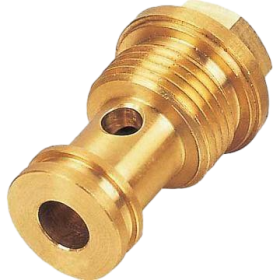
Custom Turn-Mill Combination brass parts
-
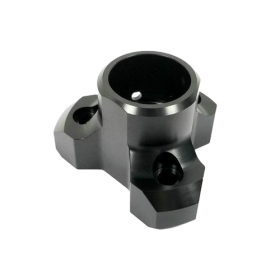
Custom Turn-Mill Combination parts
-
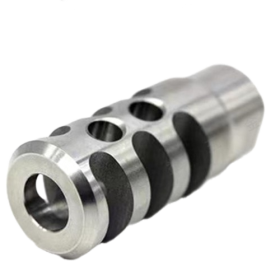
Precision CNC Turning Parts Stainless Steel shaft accessories
-
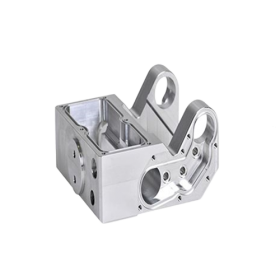
Custom CNC Milling Automated Machinery and Equipment Parts
-
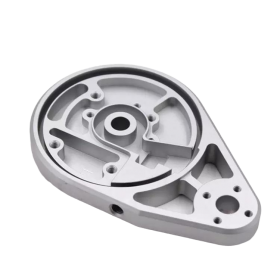
OEM/ODM Custom High Precision Metal CNC Machining/Milling/Turning Service CNC Turning Part
-
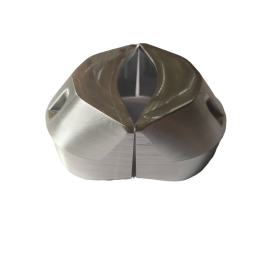
Precision CNC Milling Robotic Arm parts
CNC Machining Electric Skateboard Wheel Hub
In the rapidly evolving world of electric mobility, four-wheel electric skateboard are becoming increasingly popular. These scooters offer enhanced stability, safety, and performance compared to their two-wheel counterparts. One critical component that significantly impacts the performance and durability of these scooters is the wheel hub.
At Bomei, we started to focus on CNC machined parts for skateboards since 2020, and keep accumulating knowledge and experience in this field, we almost make all parts for skateboard for various inches, including Wheel Hubs & Rims, Wheel Sets, Front and Rear wheel brackets, Motor protection housings, Mounting Bracket Sets etc.
This blog explores the importance of precision in wheel hub manufacturing, the benefits of CNC machining and the future development trends of Electric Skateboard.
The Role of the Wheel Hub in Electric Skateboard
1. Structural Integrity
The wheel hub is a central part of the wheel assembly, connecting the wheel to the scooter's axle. It plays a crucial role in maintaining the structural integrity of the wheel and ensuring smooth rotation.
2. Load Bearing
Wheel hubs bear the weight of the scooter and its rider, distributing loads evenly across the wheel assembly. This is especially important for electric scooters, which often encounter varying terrains and stress levels.
3. Performance
The quality of the wheel hub directly affects the scooter's performance. Precision-engineered hubs ensure smooth rotation, reducing friction and wear, and enhancing the overall riding experience.
4. Safety
High-quality wheel hubs contribute to the safety of the scooter by ensuring stability and preventing wheel failures. Precision machining ensures that each hub meets stringent safety standards.
Importance of High Precision in Wheel Hub Manufacturing
1. Accuracy
High precision in machining wheel hubs ensures that all dimensions and tolerances are met accurately. This is vital for the proper fit and function of the wheel assembly.
2. Consistency
Precision machining guarantees that each wheel hub produced is consistent in quality and performance. This uniformity is essential for mass production and ensuring that every scooter operates reliably.
3. Durability
Precision-engineered wheel hubs are more durable and resistant to wear and tear. This extends the lifespan of the scooter and reduces maintenance costs.
4. Efficiency
High-precision machining minimizes material wastage and enhances manufacturing efficiency. This results in cost savings and contributes to more sustainable production practices.
CNC Machining: The Key to High-Precision Wheel Hubs
1. What is CNC Machining?
CNC (Computer Numerical Control) machining is a manufacturing process that uses computer-controlled machines to produce precise parts. It involves various processes such as milling, turning, and drilling to achieve the desired shape and dimensions.
2. Advantages of CNC Machining
· Precision: CNC machines can achieve extremely tight tolerances, ensuring high accuracy in every part produced.
· Repeatability: CNC machining guarantees consistency across large production runs, making it ideal for mass production.
· Versatility: CNC machines can work with a wide range of materials, including metals, plastics, and composites.
· Efficiency: CNC machining reduces production time and material wastage, leading to cost-effective manufacturing.
The Future Development Trend of Four-Wheel Electric Skateboards
The electric skateboard industry is experiencing rapid advancements, and the future development of four-wheel electric skateboards is poised to bring significant innovations. Here are some key trends shaping the future:
1. Smart Integration
Future electric skateboards will integrate smart technologies, such as IoT and AI, to offer enhanced features like real-time performance monitoring, adaptive riding modes, and automated diagnostics. These advancements will allow riders to have more control and customization over their skateboards.
2. Sustainability
As sustainability becomes increasingly important, manufacturers will focus on eco-friendly materials and production methods. This includes using recyclable materials and reducing the carbon footprint of the manufacturing process. Electric skateboards will also feature more energy-efficient batteries and regenerative braking systems to extend range and reduce environmental impact.
3. Advanced Materials
The use of advanced materials such as carbon fiber and lightweight alloys will make electric skateboards more durable and lightweight. These materials will enhance performance by reducing weight without compromising strength, allowing for better acceleration and maneuverability.
4. Enhanced Safety Features
Safety is a paramount concern for electric skateboard riders. Future developments will include advanced safety features such as anti-lock braking systems (ABS), enhanced traction control, and improved stability mechanisms. Additionally, smart sensors and AI can predict and mitigate potential hazards, providing a safer riding experience.
5. Customization and Personalization
As riders seek more personalized experiences, customization options will expand. High-precision CNC machining will enable the production of bespoke components tailored to individual preferences, from wheel hubs to deck designs. This level of customization will cater to both aesthetic desires and specific performance needs.
6. Connectivity and Community
Connectivity will play a major role in the future of electric skateboards. Enhanced connectivity features will allow riders to connect their skateboards to their smartphones, providing access to riding analytics, community features, and firmware updates. This connected ecosystem will foster a community of riders sharing tips, routes, and experiences.
7. Improved Battery Technology
Advancements in battery technology will lead to longer ranges and shorter charging times. New battery chemistries and innovations in energy storage will provide riders with the freedom to travel greater distances without the worry of running out of power. Wireless charging and modular battery packs could also become standard features.
8. Autonomous Capabilities
Looking further into the future, autonomous capabilities could become a reality. Self-balancing systems, automated riding modes, and even autonomous commuting options may be developed, allowing skateboards to navigate short distances on their own.
9. Regulations and Standards
As the market for electric skateboards grows, regulations and industry standards will become more defined. This will ensure safety and reliability across all products, giving consumers greater confidence in their purchases.
10. Collaborative Innovation
Collaboration between manufacturers, tech companies, and regulatory bodies will drive innovation. Joint ventures and partnerships will lead to the development of new technologies and features that will set future electric skateboards apart from current models.
Conclusion
The future of four-wheel electric skateboards is bright, with numerous innovations on the horizon. From smart integration and sustainability to advanced materials and enhanced safety features, the next generation of electric skateboards will offer improved performance, safety, and customization options. At Bomei, we are excited to be at the forefront of these developments, providing high-precision CNC machined parts that meet the evolving needs of the electric skateboard industry. Stay connected with us for the latest updates and advancements in this dynamic field.


 Evan Xiao
Evan Xiao